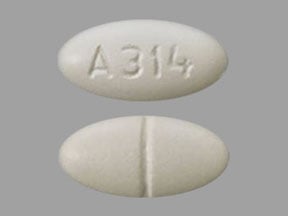
My prescription
Edit
500MG, Vigabatrin (100 Tablets)
Select pharmacy

CVS
$12660.51
COUPON PRICE
Albertsons
$2735.73
COUPON PRICE
Walgreens
$4510.00
COUPON PRICE
Walmart
$13644.67
COUPON PRICEVigabatrin savings card
Show this card to your pharmacist
Albertsons
$2735.73
BIN
ID
PCN
GRP
019876
LHFD814AD6
CHIPPO
LHX
Powered by
More prescriptions for epilepsy
More prescriptions for epilepsy
Vigabatrin dosage forms
Dosage Quantity Price from Per unit 500MG 100 Tablets $2735.73 $27.36
| Dosage | Quantity | Price from | Per unit |
|---|---|---|---|
| 500MG | 100 Tablets | $2735.73 | $27.36 |
Vigabatrin Warnings
This medication, vigabatrin (Sabril), comes with several important safety warnings and precautions to consider. Below is a comprehensive guide that outlines potential risks, necessary precautions, and recommended actions to ensure safe use of this medication:
Vision Problems: Vigabatrin can cause serious and potentially permanent vision loss, including blurred vision and tunnel vision. It is crucial to have an eye exam before or within four weeks of starting treatment, and then every three months during use. After discontinuation, an additional eye exam is recommended within 3 to 6 months. Notify your healthcare provider immediately if you notice any changes in your vision.
Special Requirements: In the United States, you must comply with the REMS Program for vigabatrin. For those outside the U.S., consult your local healthcare provider for specific guidelines.
Brain MRI Changes in Young Children: Children under six years old taking vigabatrin may show abnormal MRI results due to possible nerve swelling in the brain. These changes usually resolve after stopping the medication, but in rare cases, they may persist. If detected, a different medication might be considered.
Suicidal Thoughts or Behaviors: There is an increased risk of suicidal thoughts or behaviors when taking vigabatrin, which may occur as soon as one week after starting treatment. Seek immediate medical attention if such symptoms arise.
Withdrawal Seizures: Do not abruptly stop taking vigabatrin, as it may lead to the recurrence of seizures. Any discontinuation should be guided by a healthcare provider to gradually reduce the dosage.
Anemia: Vigabatrin may cause low red blood cell counts (anemia). Your healthcare provider may conduct blood tests during treatment. Report symptoms such as fatigue, weakness, pale skin, or shortness of breath to your provider.
Drowsiness and Dizziness: Use of vigabatrin can lead to extreme sleepiness, tiredness, or dizziness, affecting concentration and reaction time. This risk is heightened by alcohol use or concurrent medications that cause drowsiness. Assess how the medication affects you before engaging in activities that require alertness.
Peripheral Neuropathy: Some adults may experience nerve pain, numbness, or tingling in the feet, possibly affecting movement. Inform your healthcare provider if these symptoms occur.
Weight Gain: Weight gain can occur, more commonly in children, but also in adults. Report any significant weight changes to your provider.
Careful adherence to these guidelines and open communication with your healthcare provider will help manage and mitigate the risks associated with vigabatrin (Sabril).
Vigabatrin Side Effects
Common side effects:
- drowsiness
- dizziness
- headaches
- nausea
- vomiting
- diarrhea
- stomach upset
- tiredness
- restlessness or excitement (in children)
Less common but important to monitor:
- weight gain
- blurred vision
- eye twitching
- joint pain
- common cold symptoms
- abnormal coordination
Serious side effects:
- shakiness
- swelling of the ankles or feet
- tingling or numbness
- shortness of breath
- fast heartbeat
- mental health changes (depression or suicidal thoughts)
- rash
- itching or swelling
- severe dizziness
- trouble breathing
